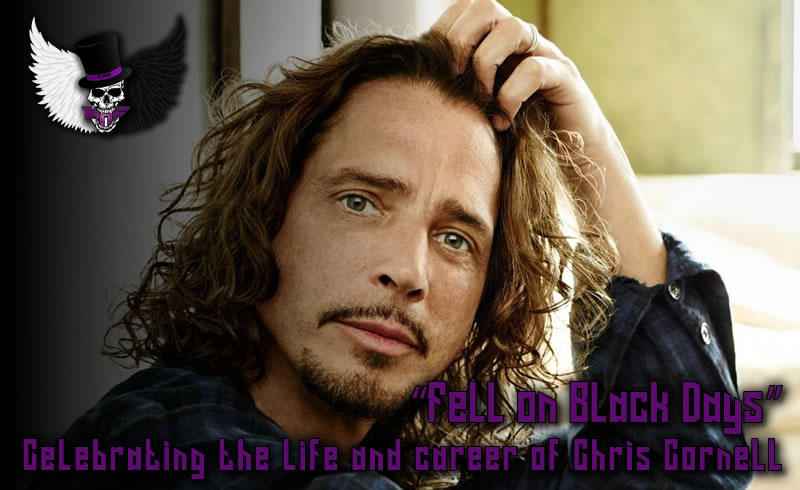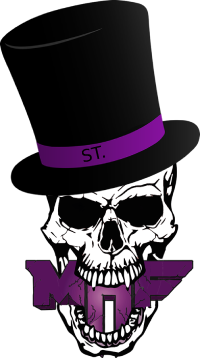Fell on Black Days by Adam McCann
Celebrating the life and career of ” Chris Cornell ”
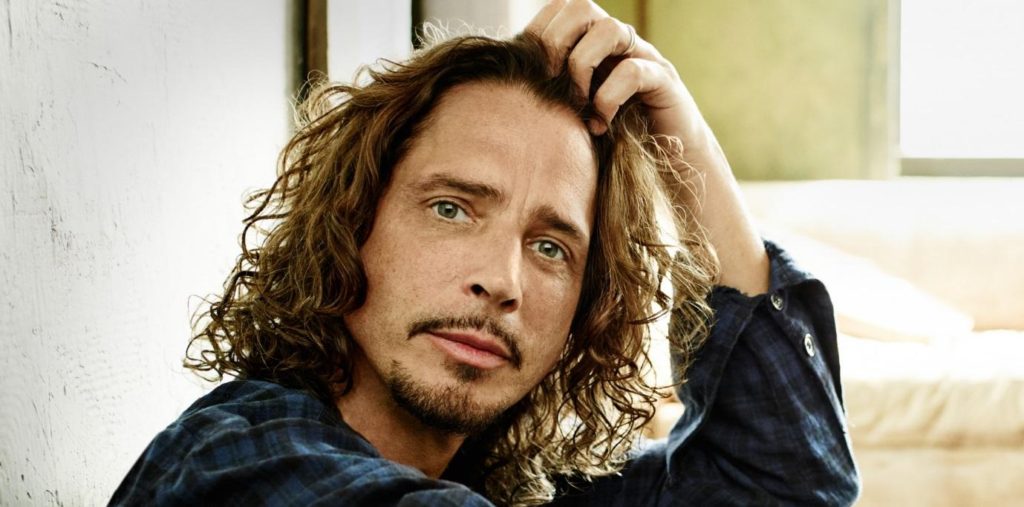 Chris Cornell is one of the trailblazing voices in the world of alternative rock and heavy metal with a huge career in grunge pioneers Soundgarden, supergroup Audioslave and a successful solo career that saw Chris Cornell stretching out into other fields working with the likes of acclaimed hip hop and R&B producer Timbaland as well as landing the James Bond theme to Casino Royale in 2006. But on the 18th May 2017, Chris Cornell was found dead after taking his own life.
Chris Cornell is one of the trailblazing voices in the world of alternative rock and heavy metal with a huge career in grunge pioneers Soundgarden, supergroup Audioslave and a successful solo career that saw Chris Cornell stretching out into other fields working with the likes of acclaimed hip hop and R&B producer Timbaland as well as landing the James Bond theme to Casino Royale in 2006. But on the 18th May 2017, Chris Cornell was found dead after taking his own life.
So, for Chris Cornell fans, what does Cornell represent? Well, Chris Cornell had it all, the image, a mass of tousled hair at times to cropped short and spiky, perpetually tanned skin coupled with deep searching eyes in which every photograph scoured your very soul and that voice. Cornell’s voice is instantly identifiable, it is a 4-octave supercharged motherfucker of a voice that has the sound of a post pubescent Robert Plant and Cornell was not afraid to use it – whatever band he was fronting, it didn’t matter, Cornell’s voice was an extra instrument, the power and timbre alone could drown out the remaining band or you could hear a pin drop with Cornell singing acapella easily sending shivers up your spine.
Soundgarden formed in 1984 and were one of the bands to be featured on the famous Deep Six collection in 1986 that showed Seattle was fast becoming a firework hotbed of music and the blue touch paper was about to be lit. Even way back then, the piercing voice and charisma of Cornell oozed from the speakers, Mark Arm and Buzz Osborne may have been able to match Cornell for energy and Andrew Wood could have given Cornell a run for his money with charisma, but Cornell was the whole package. Cornell could turn it on in an instant, a true firecracker of youthful punk energy in the style of The Stooges or MC5 whilst simultaneously holding the audience spellbound in amongst the shoving, pushing and stage diving.
As a band itself, Soundgarden easily stood head and shoulders above their peers at the time. Releasing their debut album on SST Records in 1988, Ultramega OK, Soundgarden hit the ground running, their general Seattle noise and Black Sabbath type groove adjoined by Cornell’s Zeppelin-esque vocals was a marriage made in heaven. There was however more to Soundgarden with Ultramega OK and that defining factor was undoubtedly Cornell. Cornell’s voiced soared and wailed better than Plant in his prime, it was able to drone like Ozzy and Buzz Osbourne whilst also adding the weirdness of John Lennon during the Sgt. Pepper’s era and because of this, Soundgarden were like no other band, was it heavy metal? grunge? stoner? doom? No, it was Soundgarden.
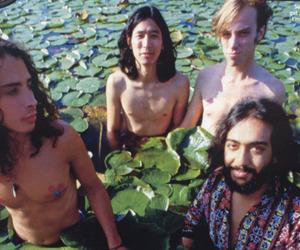 On the strength of Ultramega OK and their raw energy live, it was long before bigger things came knocking. In 1989, Soundgarden released Louder Than Love through A&M Records which dragged Soundgarden from the underground and into the spotlight with their loud and abrasive songs. A huge step forward in song writing and craftsmanship, Louder Than Love was one of the first full albums to showcase the talent and integrity that the Seattle scene had to offer and Cornell’s voice was one leading the charge. With big money behind, Soundgarden could now refine their sound and Louder Than Love happily bridged the gap between not just the Seattle scene and the grunge explosion, but also Soundgarden’s underground past and the MTV superstars that not just Soundgarden, but Chris Cornell would ultimately become. With Louder Than Love, Soundgarden still had that noisy experimental side to them, in an era where MTV and the rock nightclub were riddled with glam, AOR and melodic hard rock, tracks such as Loud Love and Get on the Snake stood out amongst the simple 4/4, predictable and easy tracks to dance to, Soundgarden asked the impossible with their complex rhythms and many time signature changes. But once more, it was Cornell that stole the spotlight for Louder Than Love by attracted criticism from the likes of Rolling Stone for his rather brash, offensive and borderline incoherent lyrics with particular focus being drawn to Hands All Over and Big Dumb Sex; the former for imploring you to ‘kill your mother’ and the latter for doing away with the metaphors and enigmas used for sex on MTV by blatantly stating that he wanted to ‘fuck, fuck, fuck, fuck you’. Cornell didn’t care, he was young and on the up with a million youths beginning to worship at the altar of Soundgarden, who cared what journalists thought?
On the strength of Ultramega OK and their raw energy live, it was long before bigger things came knocking. In 1989, Soundgarden released Louder Than Love through A&M Records which dragged Soundgarden from the underground and into the spotlight with their loud and abrasive songs. A huge step forward in song writing and craftsmanship, Louder Than Love was one of the first full albums to showcase the talent and integrity that the Seattle scene had to offer and Cornell’s voice was one leading the charge. With big money behind, Soundgarden could now refine their sound and Louder Than Love happily bridged the gap between not just the Seattle scene and the grunge explosion, but also Soundgarden’s underground past and the MTV superstars that not just Soundgarden, but Chris Cornell would ultimately become. With Louder Than Love, Soundgarden still had that noisy experimental side to them, in an era where MTV and the rock nightclub were riddled with glam, AOR and melodic hard rock, tracks such as Loud Love and Get on the Snake stood out amongst the simple 4/4, predictable and easy tracks to dance to, Soundgarden asked the impossible with their complex rhythms and many time signature changes. But once more, it was Cornell that stole the spotlight for Louder Than Love by attracted criticism from the likes of Rolling Stone for his rather brash, offensive and borderline incoherent lyrics with particular focus being drawn to Hands All Over and Big Dumb Sex; the former for imploring you to ‘kill your mother’ and the latter for doing away with the metaphors and enigmas used for sex on MTV by blatantly stating that he wanted to ‘fuck, fuck, fuck, fuck you’. Cornell didn’t care, he was young and on the up with a million youths beginning to worship at the altar of Soundgarden, who cared what journalists thought?
By 1990, other bands from the Seattle area had started to filter through onto the airwaves and alongside Soundgarden were Alice In Chains, Mudhoney and Mother Love Bone, the frontman of the latter, Andrew Wood shared an apartment with Cornell. Unfortunately, in 1990 as Mother Love Bone were on the verge of making it big, Wood sadly passed away at the age of 24 due to a heroin overdose. What is more unfortunate is that over the next 25 years, heroin would become as synonymous with the grunge movement as flannel shirts and the bands that led the scene. Being roommate to Wood did have its advantages and through this, Cornell got to know Mother Love Bone guitarist and bassist Stone Gossard and Jeff Ament. Cornell, Ament and Gossard decided to record an album in tribute to their friend Andrew Wood, joined by Soundgarden drummer, Matt Cameron and Mike McCready – a new recruit to a project Gossard and Ament happened to be working on, Temple of the Dog was born.
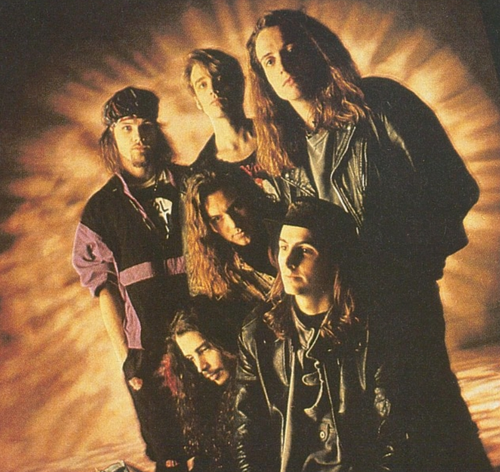 Unlike Soundgarden, Temple of the Dog did not have that experimental, noisy, heavy metal style, but what Temple of the Dog had was a more classic rock orientated sound, one that relied much more heavily on the blues, giving a real 1970’s vibe to the record and this played directly into Cornell’s beautiful soulful voice. It was Temple of the Dog where we heard that true golden voice for the first time, drenched in working class hardships as Cornell penned open letter tributes to Wood such as the tear jerking Say Hello 2 Heaven and the phenomenal blues 12-minute workout, Reach Down. However, Temple of the Dog wasn’t all about crying into a handkerchief and mourning the loss of Wood, it became much more than that, it was a celebration of his life and tore out some 70’s brilliance on the second side of the album in the shape of the hard rocking Your Savior to the more sombre Call Me a Dog, Times of Trouble and All Night Thing. But it was one song in particular, Hunger Strike, which caught the eye of the MTV playlist and that is the stunning duet between Cornell and then unknown vocalist Eddie Vedder whose dulcet baritone voice provided the perfect crux to Cornell’s wail. The music video which accompanied Hunger Strike showed a young, fresh faced Vedder contrasted against the sun-kissed Cornell and this yin yang was lapped up by the dangerously close to exploding powder keg from Seattle. From here on in, things would never be the same again…
Unlike Soundgarden, Temple of the Dog did not have that experimental, noisy, heavy metal style, but what Temple of the Dog had was a more classic rock orientated sound, one that relied much more heavily on the blues, giving a real 1970’s vibe to the record and this played directly into Cornell’s beautiful soulful voice. It was Temple of the Dog where we heard that true golden voice for the first time, drenched in working class hardships as Cornell penned open letter tributes to Wood such as the tear jerking Say Hello 2 Heaven and the phenomenal blues 12-minute workout, Reach Down. However, Temple of the Dog wasn’t all about crying into a handkerchief and mourning the loss of Wood, it became much more than that, it was a celebration of his life and tore out some 70’s brilliance on the second side of the album in the shape of the hard rocking Your Savior to the more sombre Call Me a Dog, Times of Trouble and All Night Thing. But it was one song in particular, Hunger Strike, which caught the eye of the MTV playlist and that is the stunning duet between Cornell and then unknown vocalist Eddie Vedder whose dulcet baritone voice provided the perfect crux to Cornell’s wail. The music video which accompanied Hunger Strike showed a young, fresh faced Vedder contrasted against the sun-kissed Cornell and this yin yang was lapped up by the dangerously close to exploding powder keg from Seattle. From here on in, things would never be the same again…
Just like a dormant volcano, the underground in Seattle had been bubbling, tossing and turning away since the early 80’s and just as iconic and memorable as the eruption of Mount St. Helens, in late 1991, the genre that became known as grunge blew its load all over the world, bands such as Soundgarden, Pearl Jam and Nirvana were riding the crest of the wave and became house-holds names amongst many disenfranchised youths. Generation X finally had figureheads to believe in and Cornell became of the cornerstones of this movement, a freedom fighter against the oppression of ‘the man’ and a fuck you to those who deemed this generation to be lazy and no good. Above all, Cornell was real, he didn’t wear spandex, use hairspray, sing about making love in the backseat of a car in an alley behind a movie theatre or using fake I.D. to buy beer to impress your friends or potential partner. No, Cornell sang about real issues, social isolation, depression, suicide and drug use, all these were topics that teenagers and young adults could relate to and these were in abundance on Soundgarden’s huge breakthrough album; Badmotorfinger.
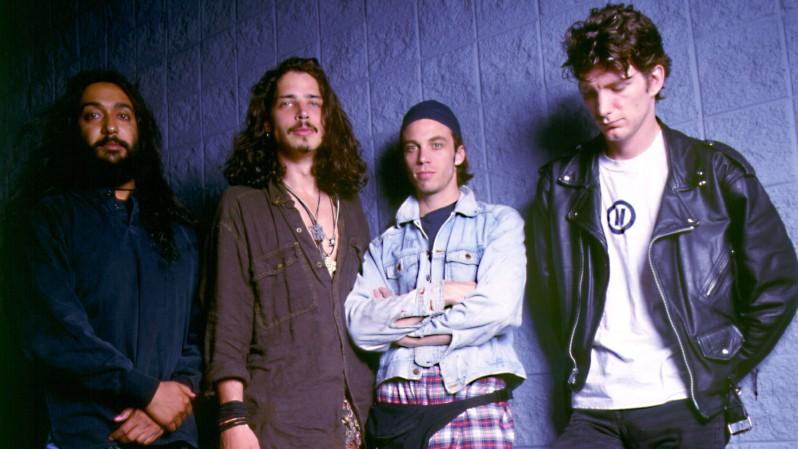
Badmotorfinger placed Soundgarden firmly on the map for everyone to see, they had the artsy grunge videos; the multiple take shots in consecutive frames, inverted hues and other colour effects. All this of course headed by their talisman, Chris Cornell, he made a generation swoon after him with that raw sex appeal, guys wanted to be just like and girls doted on his every movement. The music videos from Badmotorfinger; the grinding Outshined, the odd rhythm of Rusty Cage and tour de force that is Jesus Christ Pose all saw Cornell in all his shirtless glory as he and the rest of Soundgarden stomped their way onto MTV as well opening their combination brand of heavy metal and grunge to a slightly different type of fan base with a successful and lucrative tour with Guns N’ Roses. Soundgarden had the songs, catchy rockers spliced with strange time signatures and odd tunings not only worked but also twigged the ear of musicians around the world, the ones who disliked grunge, enjoyed a flash guitar solo and who didn’t get off on Nirvana’s punk rock back to basics style. Once more, just in front of the genius of Kim Thayil was that voice, Chris Cornell was leading the pack and Soundgarden were just about to spearhead into distance as many of their peers fell or floundered.
1994 turned out to be one of the most crucial years in grunge history, but that didn’t phase Soundgarden, for them, 1994 was their most commercially successful year with the release of their biggest album; Superunknown and for the masses, this was their first true glimpse at the band and in particular Cornell. With Superunknown, Soundgarden took a different approach to their music and although there was still some heavy grinding songs such as Mailman, the production was nigh on perfect, the songs were catchy and even though they still contained elements of Soundgarden’s trademark oddities, but now, this was combined with pop sensibilities leading to massive hits with Spoonman and Black Hole Sun; the latter of which was subject to a mind bending psychedelic music video that still has huge airplay today. Black Hole Sun saw an image overhaul for Cornell, gone was the long tousled hair and replaced by a short spiky cut that many fans still think of instantly when asked to describe Cornell.
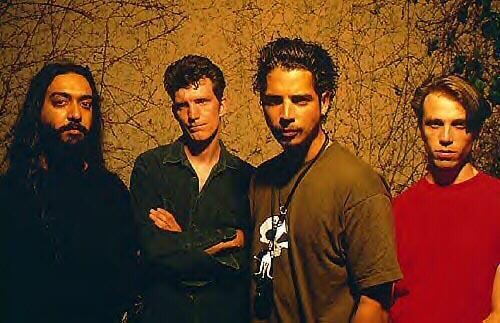
The huge runaway success of Superunknown came with its price tag, not only had the writing process been long and intense and Cornell’s lyrics had always been no stranger to being of an autobiographical nature, but underneath this success, the black dog of depression ate away at Cornell resulting in songs such as the beautifully tragic Fell on Black Days and The Day I Tried to Live. These songs were testament to not only Cornell’s writing style but also the ability for Cornell to take the burdens of depression and substance abuse and attempt to turn negatives into something positive through music. In this respect, Superunknown competes with the isolationism and abuse placed on In Utero by Nirvana and the resentfulness to what the grunge movement had become built up on Vitalogy by Pearl Jam and pushed beyond. The songs on Superunknown dealt had the angst of Cobain, the dissidence of Pearl Jam and yet the lyrics ethereally floated between the two, all delivered through the golden larynx of Cornell.
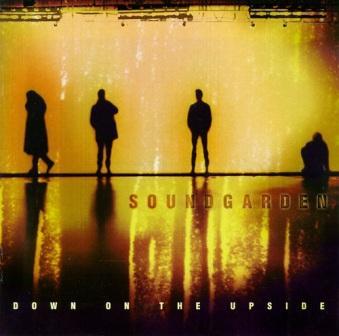 Come 1995, grunge was done, the bands that had risen to fame in the early 90’s were now struggling, burnt out from years of constant recording and touring. In the case of Soundgarden and Pearl Jam, tensions were running, whilst the likes of Alice in Chains were imploding with hard drug use and Nirvana had disbanded due to the loss of Kurt Cobain to a self-inflicted shotgun wound to the head. Not only were tension burning away under the surface of Soundgarden, but years of drink and drug abuse were catching up with them and the result was the rather patchy Down on the Upside, released in 1996. Down on the Upside isn’t the best Soundgarden album, it was a huge step away from the heavy riffing and oddities which made them famous with a move towards songs based almost entirely on the melody. Soundgarden also opted to self-produce their latest album and although it was nowhere near as pleasant to listen to as Superunknown or Badmotorfinger had been. However, a switch to a lighter sound with an emphasis on melody played right into Cornell’s hand, songs such as Burden in my Hand and Blow Up the Outside World not only showed off the raw talent of Cornell, but also showed the world that Cornell was capable of so much more and with Soundgarden calling it a day in 1997, it was time for Cornell to go into uncharted territory.
Come 1995, grunge was done, the bands that had risen to fame in the early 90’s were now struggling, burnt out from years of constant recording and touring. In the case of Soundgarden and Pearl Jam, tensions were running, whilst the likes of Alice in Chains were imploding with hard drug use and Nirvana had disbanded due to the loss of Kurt Cobain to a self-inflicted shotgun wound to the head. Not only were tension burning away under the surface of Soundgarden, but years of drink and drug abuse were catching up with them and the result was the rather patchy Down on the Upside, released in 1996. Down on the Upside isn’t the best Soundgarden album, it was a huge step away from the heavy riffing and oddities which made them famous with a move towards songs based almost entirely on the melody. Soundgarden also opted to self-produce their latest album and although it was nowhere near as pleasant to listen to as Superunknown or Badmotorfinger had been. However, a switch to a lighter sound with an emphasis on melody played right into Cornell’s hand, songs such as Burden in my Hand and Blow Up the Outside World not only showed off the raw talent of Cornell, but also showed the world that Cornell was capable of so much more and with Soundgarden calling it a day in 1997, it was time for Cornell to go into uncharted territory.
Soundgarden ending signalled the end of an era, for 13 years, Soundgarden had been a huge part of Cornell’s life and it had come a long way since the noisy, experimental era of Ultramega OK. On this side, Ultramega OK seemed a million miles away now, Cornell had undergone a metamorphosis, the loud and brash youth had given way to a poster boy of the 90’s and now Cornell stood there as one of the finest voices of a generation. No one else sounded like him, no one else could. Vedder had imitators with Scott Weiland and Scott Stapp, hell, even Cobain’s raw punk scream was being picked up by the likes of Silverchair, but Cornell was unique and in 1999, Cornell offered up his first solo album to the world; Euphoria Morning, later re-released under its original title; Euphoria Mourning. If you had been watching Cornell closely over the years, the style presented on Euphoria Morning is of no surprise, ever since the runaway success of Black Hole Sun, the focus of Cornell had been much more melodic, Down on the Upside proved this and on Euphoria Morning, Cornell took this even further by delivering an album blended with folk, blues and psychedelic influences. You will remember this well, in 1999 the world was blindly transfixed on nu-metal with its coagulation of rap and metal and sadly, Euphoria Morning managed to slip out pretty much under the radar. However, Euphoria Morning is a brilliant gem of an album and sees a brooding post-Soundgarden Cornell finding his way with a much more adult sound with a voice that could easily keep up if not surpass the other big singer-songwriters of this era such as Jeff Buckley (d. 1997) and Elliott Smith (d. 2003) with songs such as Can’t Change Me and Flutter Girl.
Whilst never strictly a nu-metal band, Rage Against the Machine certainly facilitated the foundations of that movement and it was only a matter of time before connections were made. After Rage Against the Machine mouthpiece Zach de la Roca left, the remaining members searched for a new vocalist with producer Rick Rubin putting them in contact with Chris Cornell. As you know, Cornell joined Tom Morello, Brad Wilk and Tim Commerford formed Audioslave and of course, it wasn’t long before the term ‘supergroup’ was batted around by the media. This term often signals a death sentence for a band with the knell ringing out and for Audioslave, it nearly was. The years of substance abuse that had stalked Cornell for years had finally caught up with him and in 2002, Cornell checked himself into rehab for drug and alcohol abuse, in particular, the morphine based OxyContin.
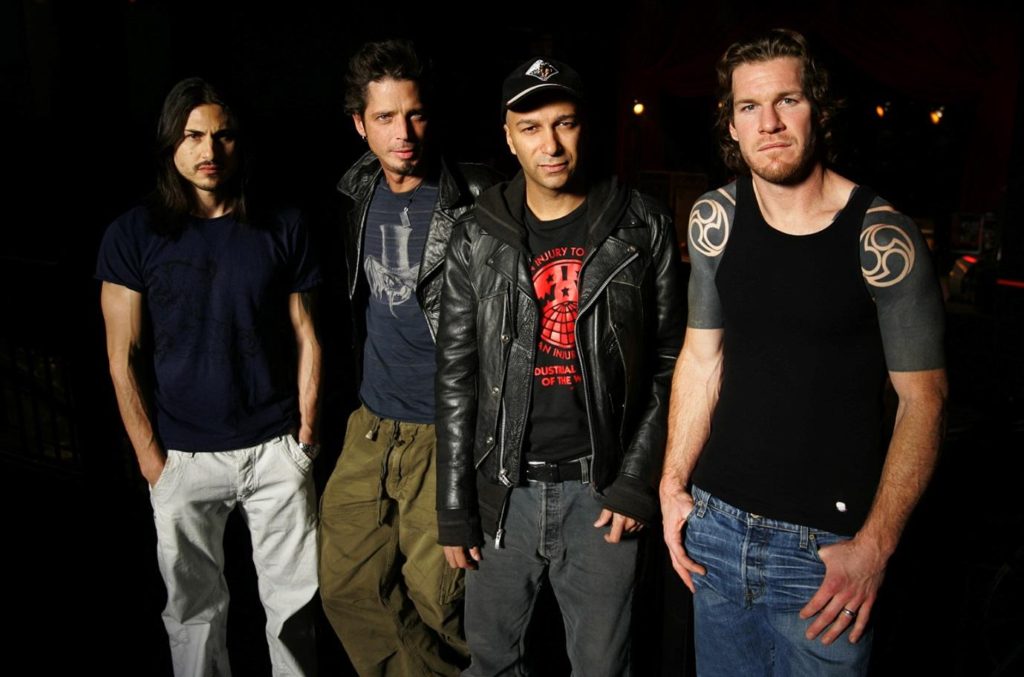
Following this setback, Audioslave was released later in 2002 and went on to go triple platinum in the US catapulting Cornell once more back into the spotlight and for a younger generation, this was their first experience of Chris Cornell with the bombastic Led Zeppelin riffing of Cochise the vocal busting Show Me How to Live or the brooding Like a Stone. The dynamics shown by Cornell on Audioslave was certainly the defining factor in the success of the band and reminded us why we loved Cornell in the first place and a post rehab Cornell was now focused, ambitious and hungry. With huge sales from Audioslave hand in hand with a successful tour and an extremely warm reception and overwhelmingly positive feedback at Lollapalooza Festival, Audioslave were set to continue taking the world by storm.
It seemed that Audioslave had finally survived their inception, kicking and screaming at times, but survived none the less and the media had moved their spotlight away from Audioslave as the band kicked back and earned a well-deserved rest. Cornell used this downtime to tie up loose ends in his life, Cornell finally quit smoking and drinking in 2004 and in the same year, Cornell also married his second wife; Vicky Karayiannis and in 2005, Audioslave released their sophomore album; Out of Exile. Out of Exile focused significantly less on the Led Zeppelin style riffs that had made Audioslave so appealing and instead focused much more on melody, songs such as Be Yourself and Doesn’t Remind Me helped the album perform well globally and hit #1 in the US. Although at the time Cornell’s lyrics were critically slated, Cornell’s voice once more pushed an album that would have floundered with any other vocalist, Cornell’s strong, powerful voice and personality came through with every emotion, helping keep Out of Exile in the limelight for a few more weeks and although Out of Exile quickly fell from grace, it certainly kept Audioslave a household name throughout 2005.

In the final third of 2006, Audioslave dropped their third and what would be their final album; Revelations. Revelations pushed even further away from the original template set out on Audioslave, it moved heavily towards a funk and R&B style sound that alienated a lot of fans. However, the one thing that certainly saved Revelations is Cornell’s voice; evidently much stronger now since quitting smoking and drinking shown on Original Fire and the title track. However, for Audioslave, it had run its course with Cornell leaving the band not long after the release of Revelations citing: “irresolvable personality conflicts, but Cornell, one door closed and another one creaked open.
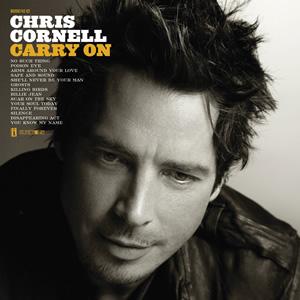 As Audioslave came to screeching halt, Chris Cornell was approached by Sony Pictures to write and perform the main theme for the upcoming James Bond movie; Casino Royale and the first to feature Daniel Craig. The song in question became You Know My Name and if beforehand Cornell had been an alternative rock/heavy metal icon, Cornell was now thrust into the spotlight as a pop name with the pop world now being introduced to Cornell’s sultry soulful voice with You Know My Name standing along more upbeat James Bond themes such as A View to a Kill and Live and Let Die. It was no surprise that in 2007, Cornell’s second solo album; Carry On, would feature a significant lack of heavy guitar and would orientate itself around a pop/adult contemporary sound with Beatles type ditties such as Safe and Sound and Ghosts to safe rockers like No Such Thing and Poison Eye. Carry On had the sound of a mature Cornell capitalising upon the success of You Know My Name and shows the resolve that reinvigorated Cornell had returning to the studio the same day as being in a motorcycle accident that would have shook others to their core.
As Audioslave came to screeching halt, Chris Cornell was approached by Sony Pictures to write and perform the main theme for the upcoming James Bond movie; Casino Royale and the first to feature Daniel Craig. The song in question became You Know My Name and if beforehand Cornell had been an alternative rock/heavy metal icon, Cornell was now thrust into the spotlight as a pop name with the pop world now being introduced to Cornell’s sultry soulful voice with You Know My Name standing along more upbeat James Bond themes such as A View to a Kill and Live and Let Die. It was no surprise that in 2007, Cornell’s second solo album; Carry On, would feature a significant lack of heavy guitar and would orientate itself around a pop/adult contemporary sound with Beatles type ditties such as Safe and Sound and Ghosts to safe rockers like No Such Thing and Poison Eye. Carry On had the sound of a mature Cornell capitalising upon the success of You Know My Name and shows the resolve that reinvigorated Cornell had returning to the studio the same day as being in a motorcycle accident that would have shook others to their core.
Riding high on the pop success of Carry On, Cornell pushed further down the pop route with his 2009 release; Scream. Enlisting pop/R&B legend Timbaland to produce Scream, Cornell took one of the biggest gambles of his career. Scream was laden with drum machine samples and outside written lacklustre chorus’ that served no other purpose than to shift records, any sound of Cornell’s previous work was basically gone leaving Cornell singing the style of R&B and pop that had sold millions of records for the likes of Gnarls Barkley. Although Scream initially charted at the highest point of any Cornell solo record, placing it at #10, the gamble didn’t pay off and Cornell had alienated his fan base which had stayed loyal to him through his maturation into one of the best pop voices in the last 25 years. From here, a rethink was needed and Cornell announced in 2010 that Soundgarden would be reforming, with the band working on the new track Black Rain for the greatest hits compilation Telephantasm before Cornell headed out on the road for the Songbook tour. The Songbook show was an acoustic set containing songs spanning Cornell’s entire career plus a few covers; namely Imagine by John Lennon and Thank You from Led Zeppelin and in 2011, Cornell released his first live album; Songbook and from the critical failure that was Scream, Songbook’s stripped back live, raw and acoustic sound reminded everyone not just how good Cornell’s voice was, but also how beautiful, soulful and meaningful it can be and at times, it isn’t impossible to hold back the tears at the songs.
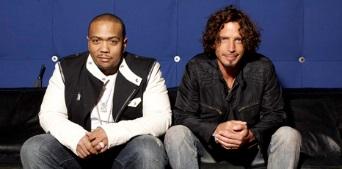 With an album finally ready in 2012, Soundgarden released King Animal, receiving a huge amount of airplay with the lead-off single; Been Away Too Long and the world fell in love with Soundgarden once more, even if the songs on King Animal weren’t exactly going to set the world on fire. King Animal bordered on the spiritual successor to Down on the Upside, it had many of the melodic idealisms that were batted around and it may have lacked that heavy crunch, but King Animal showed not only an older Soundgarden, but a mature, adult and above all, sober Soundgarden. The main resounding issue with King Animal is that many of the songs feel rather unfinished and at times, the album has the devolved feeling of an elongated jam. However, this is countered by Cornell’s strong, powerful voice as the maturity of his time with Audioslave and solo work show this improvement in his original habitat of Soundgarden, tracks such as Taree and Eyelid’s Mouth show literally how much Cornell’s voice has improved during Soundgarden’s absence and just like Down on the Upside, it may actually be that voice that saves the album from being totally unmemorable and lacklustre.
With an album finally ready in 2012, Soundgarden released King Animal, receiving a huge amount of airplay with the lead-off single; Been Away Too Long and the world fell in love with Soundgarden once more, even if the songs on King Animal weren’t exactly going to set the world on fire. King Animal bordered on the spiritual successor to Down on the Upside, it had many of the melodic idealisms that were batted around and it may have lacked that heavy crunch, but King Animal showed not only an older Soundgarden, but a mature, adult and above all, sober Soundgarden. The main resounding issue with King Animal is that many of the songs feel rather unfinished and at times, the album has the devolved feeling of an elongated jam. However, this is countered by Cornell’s strong, powerful voice as the maturity of his time with Audioslave and solo work show this improvement in his original habitat of Soundgarden, tracks such as Taree and Eyelid’s Mouth show literally how much Cornell’s voice has improved during Soundgarden’s absence and just like Down on the Upside, it may actually be that voice that saves the album from being totally unmemorable and lacklustre.
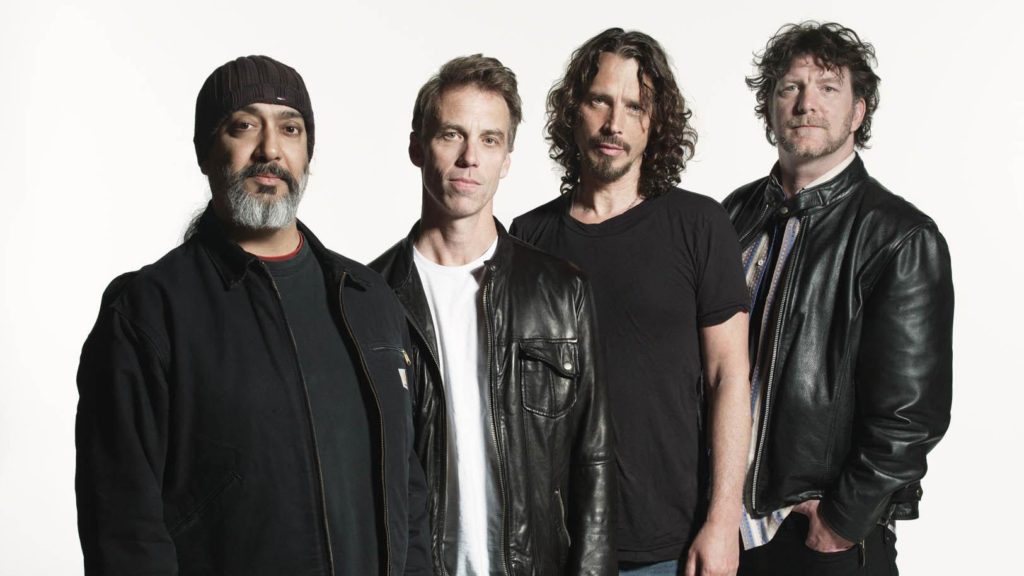
During the downtime from touring King Animal, Cornell began work on what would become his final solo album; Higher Truth. In a move inspired by the intimacy of the Songbook tour, Higher Truth took this closeness into the recording studio. Showing the maturity of learning from your mistakes, Cornell took ideas from Scream and for Higher Truth, Cornell used drum loops and multilayers to achieve the correct sound and although Higher Truth didn’t quite manage to wiggle the emotional meat hook like Euphoria Morning did, that word appears again. Mature. Higher Truth amalgamated everything that Cornell had learnt over his expansive and successful career and although it is light years away from the young adult that noisily wailed his way through Ultramega OK, but with each footstep, Cornell took it all in his stride, experiencing and learning everything along the way.
When his body was found on the 18th May, it didn’t quite sink until a week later that the world had lost one of the best voices of a generation. Cornell touched so many lives throughout his career and the world wept with his passing; whether you were there in Seattle 1984, clad in flannel and lost in 1994, celebrating a breath of fresh air from the stagnation of nu-metal in 2002 with Audioslave or a casual listener turned on by a James Bond theme or beautiful solo works, it became painfully clear that there wouldn’t be another voice like Cornell. However, to debase Cornell down to just a voice would be an injustice; Chris Cornell was a stellar musician, a husband, a father, a friend, a spokesperson for a generation, an activist and a producer. On the 18th May, the light went out for good on Chris Cornell’s life, but one thing is certain, Cornell will live on forever through the music that he made. Rest in peace brother.
Chris Cornell
1964 – 2017
Adam McCann / MHF Magazine

